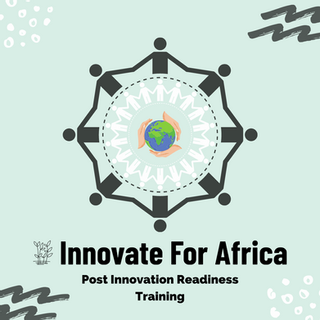How do we solve the Mental Health Crisis in Nigeria? (Conducting a Primary Market Research)
- Kamaldeen Adekola
- Jan 11, 2021
- 4 min read
Updated: Jan 24, 2021
After a week of intensive training on design thinking with Innovate for Africa, it was time to put my newly acquired skills into practice using design thinking processes to find a marketable solution in a given area of interest. Mental health is an issue that is paid very little attention to in Nigeria. The WHO estimates that fewer than 10 percent of mentally ill Nigerians have access to the care that they need. There are less than 150 psychiatrists in Nigeria, a country with over 200 million people. More than half of all mental illnesses remain untreated, leading to worsening mental conditions, chronic physical health problems, job stability issues, relationship challenges, trauma, and suicide. So how might we innovatively enhance access to mental health care to struggling Nigerians despite the care-giver shortage? As a team of four innovators, we began using the design thinking methodology to proffer a solution to this crucial problem.
If the week-long design thinking class taught me anything, it is not to assume that you understand the problem your potential customers face. Needless to say, that if you don't understand their problem, chances are, you don't have the solution either. Unfortunately, too many start-ups spend time developing complicated products that no one cares about. This brings me to the first step of the design thinking process. Empathize. This is where you conduct your primary market research.
What is Primary Market Research (PMR)?
According to entrepreneur.com, PMR is a method of designing a user-centered product that involves interacting and soliciting information directly from a potential customer to gain knowledge specific to your potential venture.
There are several ways of conducting primary market research. However, we chose to interview people we think have the kind of problems we're hoping to solve. In our interviews, we tried to ask open-ended questions that can make us truly understand our prospective customer's mental health experience, find their pain points, and generally immerse ourselves in their experiences.
The Process of Conducting PMR
Planning and structuring our interview questions and procedures and following our PMR interviews' structure helped us understand our potential customers' experiences, thus deriving new insights to understand their challenges better.
In conducting our PMR interviews, we took the following steps:
· Brief secondary research to understand the challenges of mental health care and current developments
· Draft a problem statement
· Defining the goals and objectives of our PMR
· Develop questions to ask potential interviewees
· Perform mock interviews and refining the questions for PMR interviews
· Identifying the criteria for interviewees
· Registering and scheduling interview times with volunteers via google forms
· Conducting interviews with one person doing the questioning and the other person taking notes
· Taking notes and documenting key insights for every interview
PMR Interview Questions
1. What is your understanding of mental health?
2. Have you ever considered seeking mental health help? (If interviewee answers No, follow up with Alternate question- would you consider seeking mental help if you think you need help?)
3. What sort of mental health help have you sought before, if any? (Alternate question, what kind of mental health care would you desire should you require one?)
4. How was your experience seeking mental health help? What did you find helpful/pleasant, and what did you find challenging/unpleasant? (Alternate question - Would you feel hesitant to seek mental health care if you think you need it? and why?)
5. How long did it take before being aware and deciding to opt-in for mental health care? (Alternate question - Do you track your mental wellbeing? Do you pay special attention to it?)
6. What would ideal mental health care look like to you?
Key Insights from PMR Interviews
Indeed, our PMR interviews' central learning was that people are incredibly diverse in the methods they prefer to receive mental health care. While some believed that having a community where people could share their stories and feel a connection was necessary, others think that such a community would create more pressure and anxiety for them as they take on people's issues. Besides, some people believe that having easier access to a therapist is the preferred way to get care. Others believe that a therapist would not be able to develop a deep connection with them and prefer to have access to a peer mentor who has overcome similar experiences and can build a close emotional relationship while remaining anonymous.
A few things were common in all our interviews. An overwhelming number of people want to remain anonymous while seeking mental health care. Apparently, this results from the stigma associated with seeking mental health care in Nigeria. Most of our interviewees also believe that many people do not understand what mental health entails. Thus, an adequate solution will provide alternatives for the customer to identify their preferred method of care, educate their customers on the importance of mental health care and provide easier and low-cost access to personalized mental health care.
Conclusion
In summary, our potential customers' main pain points include the lack of education about mental health and the lack of access to mental health care resulting from the cost of seeking one and the shortage of professional therapists in the country. Also, people want to develop an emotional connection with those that provide care for them. Lastly, a majority of people want to maintain anonymity when receiving mental health care.
Based on these learnings, we revisited our problem statement and redefined it to encompass our potential customers' realities. This step is called Define. As we advance, we will move to develop ideas that can effectively solve our new problem statement.









Comments